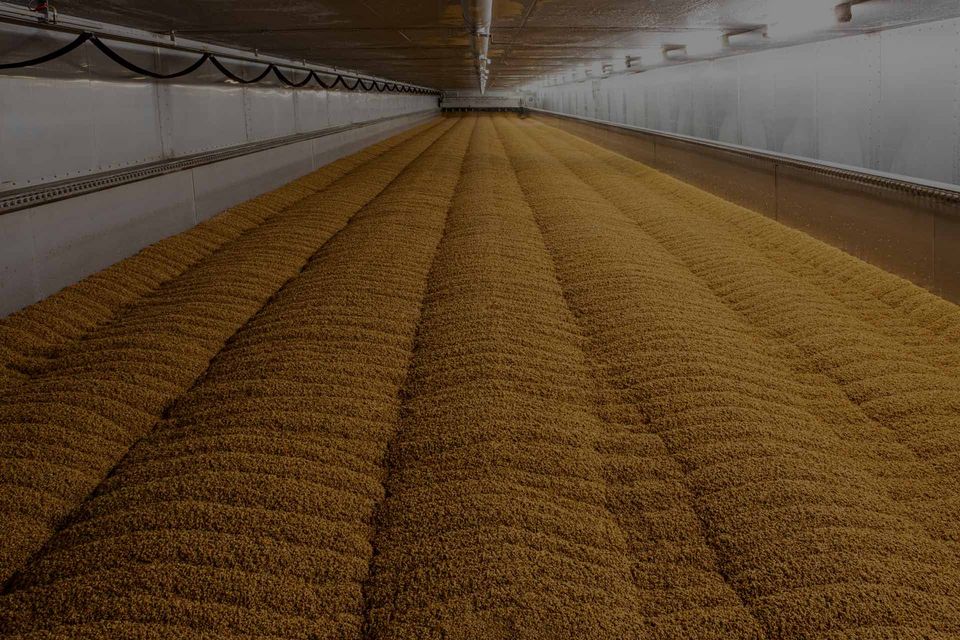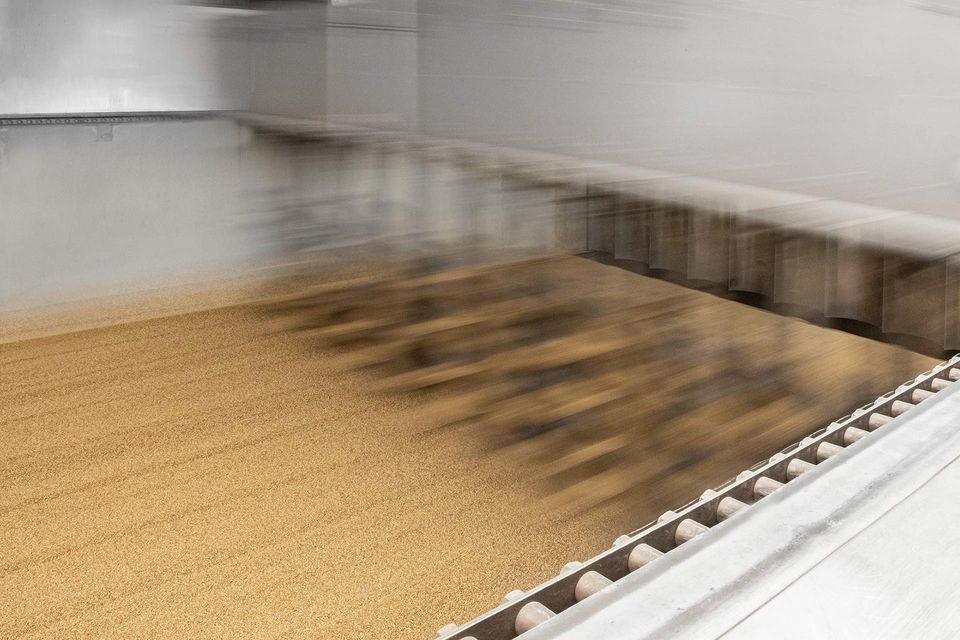
Malt production

Through the permanent computer-controlled monitoring and documentation of all quality-relevant process data, we can specificallymonitor the properties of our malt varieties. In-house small-scale malting processes, for which a laboratory kiln, a laboratory roasting drum or incubators are used, for example, represent a reliable source of early quality detection and additionally give us the opportunity to develop innovative malts.
The decision to produce according to traditional germination methods with falling temperatures positively influences the quality of our malts, too. This results in high enzyme activities, which in turn provide a sound basis for further processing in the brewery. Close cooperation with our own agricultural trade enables us to use the best grain and, if necessary, to intervene in the malt production process at an early stage. Our speciality malts, which we produce according to proven processes, play a special role. For example, our popular caramel malts are produced exclusively in the roasting drum.